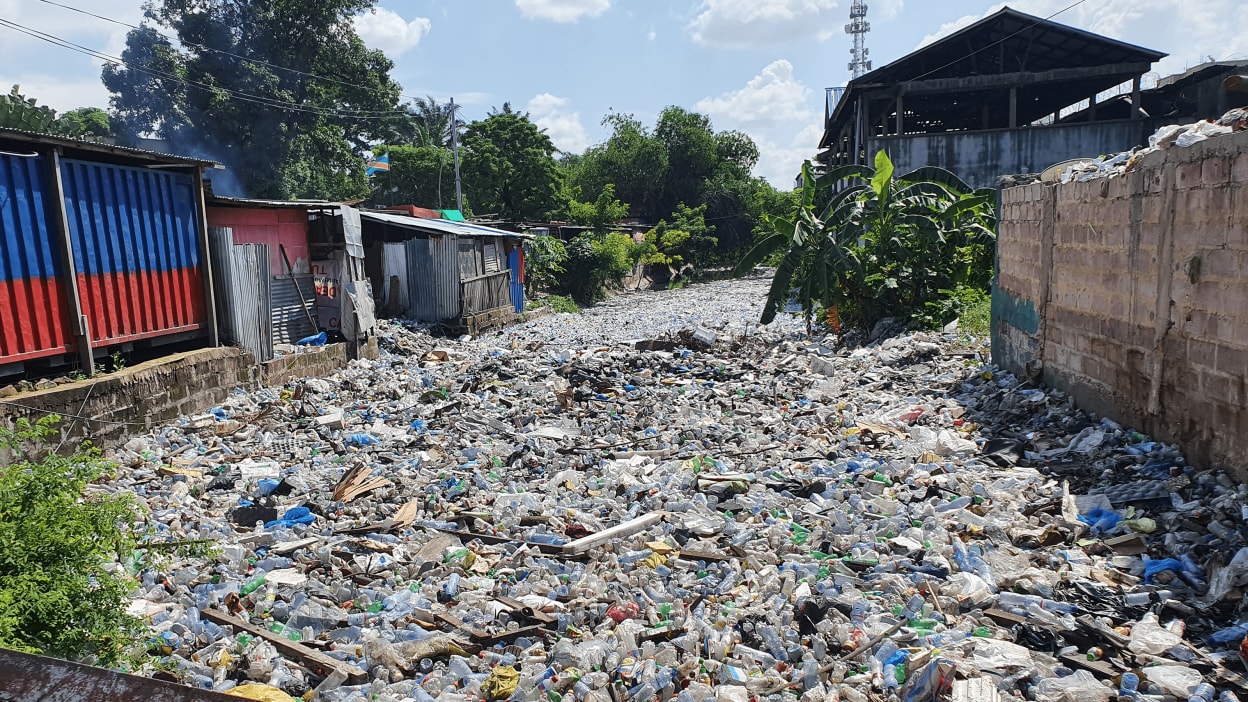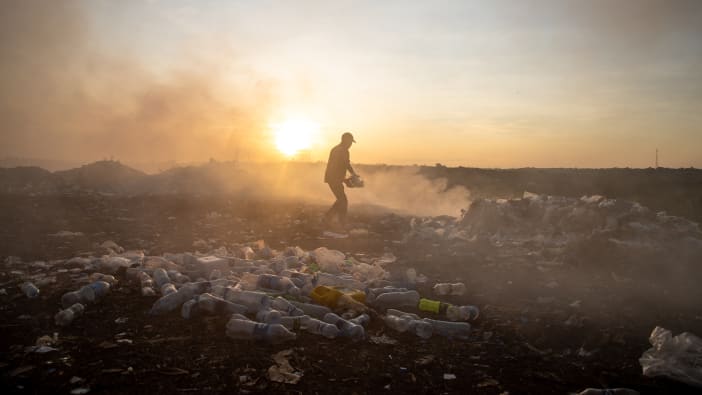Our world’s rubbish problem is not just an environmental issue: it’s a human one too. Tearfund works with local partners, churches and grassroots organisations in more than 50 countries, and it is clear that plastic pollution is impacting those in low-income communities the most, pushing more people further into poverty.
Why is plastic pollution such a big problem?
More than 2 billion people in low- or middle-income countries don’t have access to solid waste management. This means they have little other option but to dump or burn their rubbish on open dumpsites, in the road, in waterways or even in their own backyards.
Today, globally, we throw away about 300 million tonnes of plastic waste every year. That's enough to cover almost 50,000 football pitches a day! And the volume of rubbish is only getting bigger: our use of plastic is set to almost triple by 2060 and half of all plastic is now designed to be used only once before being thrown away.
This means the harmful impacts of all this plastic pollution are becoming more widespread and severe. But what impact does all this rubbish have, and why is it people in poverty who are most affected?
1. Plastic pollution damages health
Plastic pollution poses huge risks to people’s health and wellbeing: the toxic fumes that are released when rubbish is burnt can lead to serious respiratory problems.
As Rubina* in Pakistan explains: ‘People would burn waste in the open since there were no other means of disposal. This would cause my children to cough and get sick, especially when soft drink bottles were burnt along with other plastics, causing thick, dense smoke.’
Another issue is that plastic pollution clogs rivers and waterways, leading to flooding which causes an increased risk of harmful disease outbreaks. Plastic rubbish lying in water is a breeding ground for mosquitoes, flies and vermin that can transmit diseases like malaria to people in the area. Research has shown that the incidence of diarrhoeal disease is twice as high for people living among mismanaged waste.
Outbreaks of dangerous diseases and respiratory problems like these pose a serious threat to people’s lives, as well as impacting their ability to work, earn a living and provide for their families, pushing communities deeper into poverty. Previous research by Tearfund has shown that one person dies every 30 seconds from diseases caused by mismanaged waste.
2. Plastic pollution causes flooding disasters
As well as causing disease, when plastic pollution blocks waterways it can also exacerbate flooding which can lead to huge disasters and loss of life. Many communities across the world experience regular, flash flooding on a devastating scale – even after just a small amount of rainfall – as the plastic dumped in rivers and drains means excess water has nowhere to go.
In December last year, plastic waste led to deadly flooding in Kinshasa, the capital of the Democratic Republic of Congo, which killed more than 120 people. Those in low-income areas surrounding the river were the most affected. Our partners in Recife, Brazil, deal with their river bursting its banks on a regular basis for the same reason – so much so that the local church has had to recruit a volunteer lifeboat team to rescue stranded people when the floods come.
These horrendous events cause loss of life, and sweep away homes and businesses, and it’s often low-income communities who have little option but to live on the riverbanks or in densely populated urban areas who suffer the most.
3. Plastic pollution threatens livelihoods
Flooding clearly threatens people’s ability to earn a living, but there are other ways plastic pollution can harm their livelihoods too. Plastic pollution poses a significant hazard to farm animals: ingestion, choking and entanglement are a serious risk. Studies have found that in some low- and middle-income countries, up to a third of cattle and half of the goat population have consumed significant amounts of plastic which they have mistaken for food. Fish are similarly affected: for those who rely on their livestock and fishing for their income, this is particularly devastating.
Plastic pollution also hampers crop growth by obstructing the flow of water and air in the soil. And in many places where the local economy relies on tourism, unsightly plastic pollution is threatening businesses and curtailing growth. All of this makes it harder for families to lift themselves out of poverty and to plan for the future.











